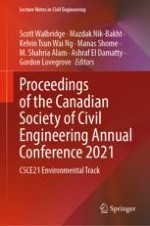2023 | OriginalPaper | Buchkapitel
Diversion of Electron in Mixed Microbial Culture to Treat the High Sulfate and LCFA Contaminated Wastewater Treatment
verfasst von : Rajan Ray, Mamata Sharma, Nihar Biswas
Erschienen in: Proceedings of the Canadian Society of Civil Engineering Annual Conference 2021
Verlag: Springer Nature Singapore
Aktivieren Sie unsere intelligente Suche, um passende Fachinhalte oder Patente zu finden.
Wählen Sie Textabschnitte aus um mit Künstlicher Intelligenz passenden Patente zu finden. powered by
Markieren Sie Textabschnitte, um KI-gestützt weitere passende Inhalte zu finden. powered by
